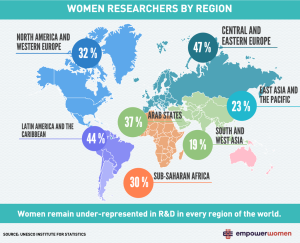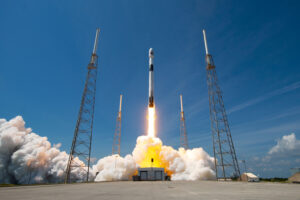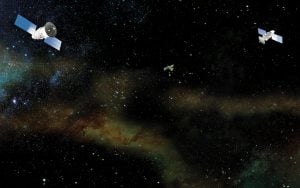
Science & Tech
UN declares International Day of Women in Science
From Roberta Bondar to Harriet Brooks, Canada has more than its fair share of women scientists to be proud of. However women are still a minority in the STEM fields
- 472 words
- 2 minutes
Science & Tech

Illegal, unreported and unregistered fishing vessels are about to be caught: Fisheries and Oceans Canada will employ advanced satellite technology to detect and track illegal fishing ships, known as “dark vessels.”
Dark vessels cost the global economy up to $30 billion a year — and that’s the conservative estimate. They avoid detection by switching off their transponders and “going dark,” stealthily slipping by coastguards and maritime patrols.
According to Sean Wheeler, senior programme officer at the Fisheries and Oceans international program, these losses have the potential to destabilize governments, cause significant environmental damage and harm food stability in developing nations.
“It can be illegal fishing, drug trafficking, there can be human rights abuses and there can be environmental impacts,” says Wheeler. “What we’re trying to do is disrupt that ability to operate anonymously, using space-based technologies that allows us to cover a much wider area.”
And so, Canada is taking the battle to space. The Dark Vessel Detection program, priced at $7 million, will use a network of orbiting satellites to pinpoint the elusive ships. The satellites’ radar imaging will make previously undetectable ships detectable — like activating night vision goggles in a dark, silent room. Boats’ signals will then be cross checked against registered signals, shining a spotlight on those that shouldn’t be there — dark vessels.
It will be used primarily to support developing nations in their efforts to protect their fish stocks. The initial deployment of the system will be in Ecuador, specifically around the Galapagos islands, and in the Pacfic Islands. Both have significant patrol resources, says Wheeler. The new satellite system will integrate with these existing operations.
“When the system detects something that’s a potential risk or suspicious, they would dispatch an aircraft or a vessel to investigate,” says Wheeler. “Using satellite remote sensing, we can cover millions and millions of square kilometres more efficiently than a vessel could, allowing these regions to become much more effective at patrolling their neighbourhoods.”
The program is viewed by DFO as research and development — and if successful, expect to see further investment in this area.
“For any country with a large coastline like Canada, or like our partner countries, the need to have effective monitoring is crucial,” says Wheeler.
The satellite technology will be supplied by Canadian-owned space tech firm, MDA. Their RADARSAT-2 satellite, in combination with several other satellite constellations, will create a continuously updating picture of the areas in question. Therein lies the system’s strength, according to Wheeler. The fusion of all the different data sources will give the country or operator the power to manage the system and respond rapidly, in real time.
For now the satellite technology will be used for the valuable business of detecting dark vessels — but when it comes to future applications, the sky’s the limit.
“Everything from illegal oil transfers to illegal sand smuggling and drug trafficking could be addressed through better tracking of vessels, particularly on the high seas, which have historically been very difficult to monitor because of the sheer size,“ says Wheeler. “So I think that this approach will be pursued not only by Canada, but by many other countries as well.”
Are you passionate about Canadian geography?
You can support Canadian Geographic in 3 ways:

Science & Tech
From Roberta Bondar to Harriet Brooks, Canada has more than its fair share of women scientists to be proud of. However women are still a minority in the STEM fields

Science & Tech
With help from Canadian scientists, this dark universe hunter aims to study why the universe is expanding at an accelerating rate

Science & Tech
As geotracking technology on our smartphones becomes ever more sophisticated, we’re just beginning to grasps its capabilities (and possible pitfalls)

Environment
Carbon capture is big business, but its challenges fly in the face of the need to lower emissions. Can we square the circle on this technological Wild West?